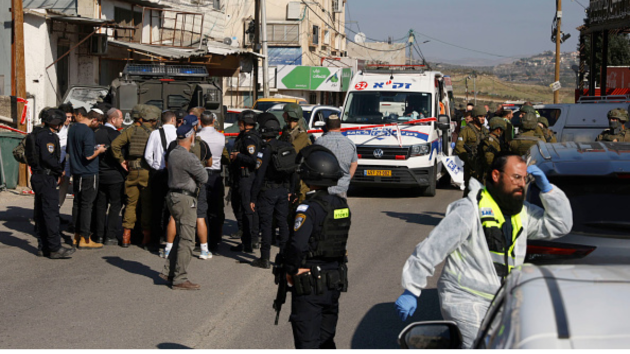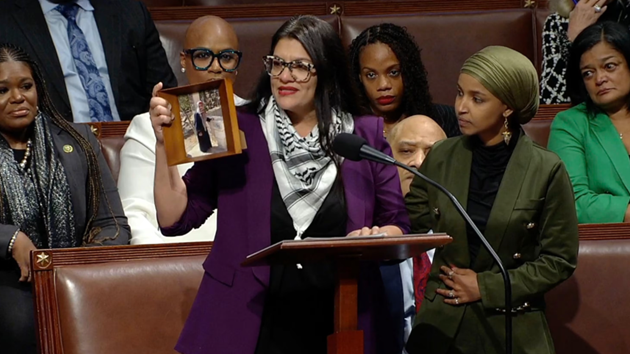US diplomatic push continues as Netanyahu considers pauses
Written by ABC Audio ALL RIGHTS RESERVED on November 8, 2023
(WASHINGTON) — Secretary of State Antony Blinken’s high-profile visit to the Middle East to push for humanitarian pauses in the Israel-Hamas war may have yielded no immediate results, but American envoys on the ground are still quietly making the administration’s case — a strategy that officials and analysts say may ultimately prove to be more effective.
As Blinken departed the region on Sunday, CIA Director William Burns arrived in Israel, embarking on what a U.S. official described as a tour through several countries in the Middle East to meet with “multiple intelligence counterparts and country leaders.”
While many of Burns’ engagements will center on intelligence sharing and counterterrorism, officials say his agenda is also expected to overlap significantly with Blinken’s, with common focal points including hostage negotiations, preventing the spread of the conflict and implementing breaks in Israeli bombardments to benefit civilians in Gaza.
Israel has been warning civilians to leave the area for weeks, a task the U.N. and other organizations said not only was impossible but would precipitate a humanitarian disaster. Gaza has been under siege and bombardment since the terror attack.
Israeli Prime Minister Benjamin Netanyahu has not issued any public guarantee that Israel will incorporate the Biden administration’s proposed pauses in its battle plans, but in an exclusive interview with ABC News’ World News Tonight anchor David Muir on Monday, he didn’t rule them out.
“As far as tactical little pauses — an hour here, an hour there — we’ve had them before. I suppose we’ll check the circumstances in order to enable goods, humanitarian goods to come in, or our hostages, individual hostages, to leave,” he said.
Longer windows of calm are likely necessary to advance the administration’s goals of distributing humanitarian aid through Gaza and establishing so-called “safe zones” for civilians, and Netanyahu insists he will not consider even a temporary cease-fire unless Hamas releases the more than 200 hostages it says are being held within Gaza — an unlikely prospect.
But Emily Harding, former deputy staff director on the Senate Select Committee on Intelligence the director of the Intelligence, National Security, and Technology Program at the Center for Strategic International Studies, says Burns may be able to move the needle.
“Director Burns has proven himself a very effective intelligence diplomat,” Harding said, noting Burns’ decades of experience in the U.S. foreign service and longstanding connections in the Middle East.
“I think that Burns can help in a sense because he is going to be bringing probably some additional declassified intelligence and he can give the dual message that we support you in doing what you need to do to fix this problem, but we will do everything that we can do to often help you protect civilians,” she continued.
While officials within the Biden administration acknowledge that Israel remains deeply emotionally impacted following Hamas’ horrific terrorist attacks carried out against Israeli civilians a month ago, they have projected confidence that Israel is intent on adhering to the rules of war and cooperating with the U.S. and other partners to minimize civilian suffering where possible. Officials have declined to say whether Israel has violated laws of war in any of its actions, saying making such determinations would be speculation.
U.S. officials have also noted that Israel’s public messaging often appears to be more severe than its actions, raising optimism that quiet engagement may subtly shape its strategy.
But as Arab leaders continue to call for a total cease-fire, it remains to be seen whether anything short of an end to Israel’s military campaign will quell outrage that has rippled through region, especially as Israel ramps up its ground operations in Gaza — opening the door to more complex problems in the days and weeks ahead.
“Gaza City is encircled. We are operating inside it. We are increasing pressure on Hamas every hour, every day. We have killed thousands of terrorists, above ground and below ground,” Netanyahu said on Tuesday.
The development sets the stage for fierce urban fighting in an area still densely populated with civilians — including Gaza’s al Shifa Hospital, a sprawling medical center Israel says serves as host to Hamas’ headquarters as well as a temporary shelter for thousands of displaced Palestinians.
While U.S. officials do not dispute Israel’s assessments of Hamas’ operations in al Shifa and have repeatedly said Hamas uses civilians as human shields, the administration’s rhetoric has seen a subtle shift in tone in recent weeks marked by officials stressing the need for Israel to minimize collateral damage despite the difficult circumstances.
“We continue to stress to our Israeli counterparts that they’ve used discriminate and careful in their targeting as possible,” White House spokesperson John Kirby said on Tuesday.
Although the Israeli offensive is making progress, Seth J. Frantzman, an adjunct fellow at the Foundation for the Defense of Democracies, says it’s clear the country’s forces will need to engage further to eliminate the threat posed by terrorism.
“Over the last week in Sderot, we witnessed numerous rockets launched from areas near Gaza City, illustrating that despite the IDF’s increasing encirclement, Hamas or other groups can still sustain their attacks,” he said. “While Hamas continues to fire barrages of rockets, it has generally reduced this rocket fire to one or two large barrages a day, generally after nightfall and aimed at central Israel.”
What happens after Israel’s military operation subsides may prove just as controversial.
While Israeli officials say they won’t occupy Gaza after war ends, Netanyahu said on Monday that country will control the enclave’s security for “an indefinite period of time.”
“When we don’t have that security responsibility, what we have is the eruption of Hamas terror on a scale that we couldn’t imagine,” Netanyahu said.
Asked about the prime minister’s assessment, Kirby said the administration was engaged in “active discussions” with Israel about Gaza’s future.
“The president maintains his position that a reoccupation by Israeli forces is not the right thing to do,” he said. “The one thing there’s absolutely no daylight on is Hamas can’t be part of that equation.”
While there’s still no clear candidate to lead Gaza after the conflict, a former Israeli Intelligence Corps official who is now a senior researcher at the Institute for National Security Studies, an Israeli national security think tank, argues that minimizing disagreements over the enclave’s future is essential to Israel’s military success in the present.
“There is a clear division between Israel’s views and those of President Biden and his administration,” he said. “Undoubtedly, the absence of Israeli readiness to discuss the issue will have a negative effect on the administration’s patience for the continued military campaign, and will increase its suspicions regarding Israel’s objectives for ‘the day after.'”
Copyright © 2023, ABC Audio. All rights reserved.






